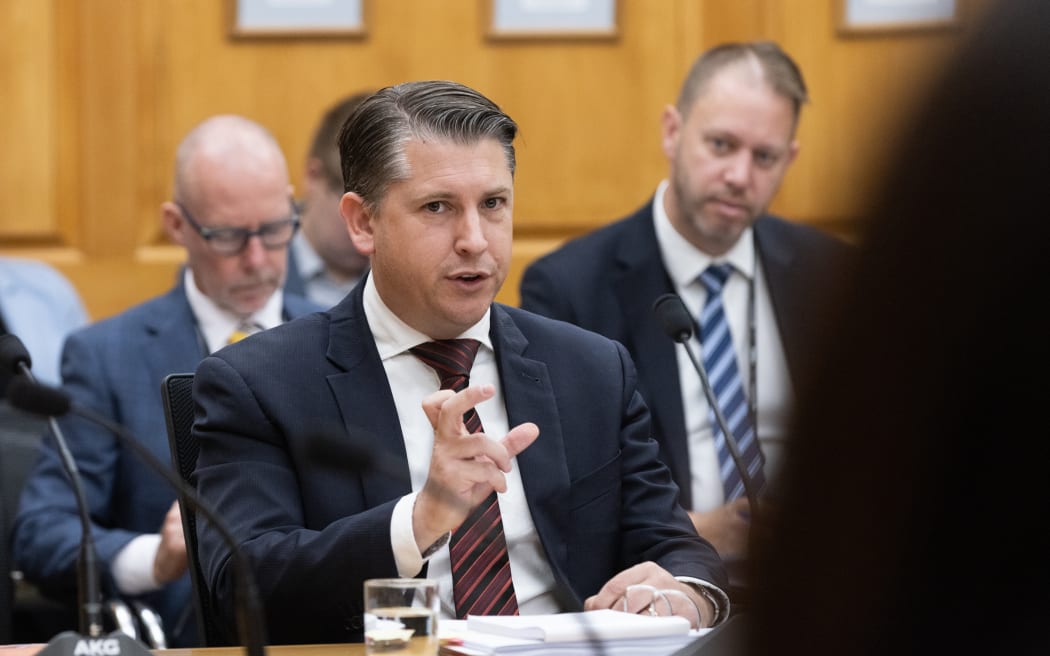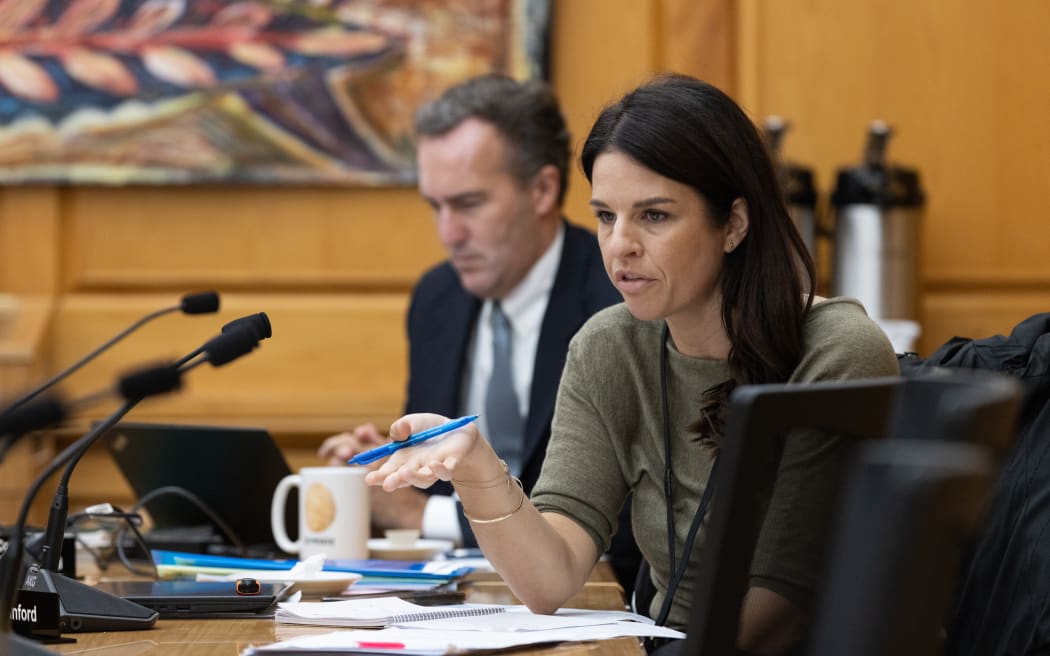The aspect of Parliament that most people notice is Question Time: the first hour in the debating chamber when all the MPs are present, are noisy and looking to score political points. It’s often heavy on the political sturm and drang, but light on the practical enlightenment.
The second most known part of Parliament is the other 80-odd percent of time in the debating chamber. The time when MPs are (mostly) debating proposed laws.
But wait, there’s more. The aspect of Parliamentary action that is frequently overlooked is also often the most interesting, arguably the most useful and definitely where the government gets scrutinized most carefully.

Green MP Ricardo Menendez March questioning a Minister in select committee. Photo: Phil Smith
Select Committees. They meet for nigh-on 50 hours each sitting week, and many keep on meeting even when the House itself is in recess. They often do this online.
I’ve heard select committees called variously the workhorse and the engine room of Parliament. Both are excellent descriptions.
Like the House, select committees spend most of their time hearing evidence on and nutting out the details of proposed laws. But they are also the main place that Parliament keeps an eagle eye on the work of government.
The photos in this article are all from a select committee hearing this week. The Education And Workforce Committee were digging into details of the settings and performance of the Immigration Department. It was an opportunity for particularly National and Green MPs to ask some pointy-ended questions about policy, plans, immigration settings, practical operations, and finance. It was both quite detailed and quite fascinating.

Labour MP and Minister of Immigration Michael Wood answers questions about immigration in select committee. Photo: Phil Smith
In attendance were the responsible minister, Michael Wood, and also a bevy of officials.
We often forget that while Parliament’s scrutiny of Government focuses on the ministers who are the Executive, the Government is actually the full apparatus of the state and so Parliament also keeps an eye on the vast panoply of detail that involves.
For some months the various select committees have been holding annual reviews. Annual Reviews and their sibling Estimates Hearings are a twice-yearly round of detailed examinations of government departments and entities; from the National Limb Service to the Armed Forces. Committees grill ministers and officials on how they plan to spend money (estimates hearings) and later on how they actually spent it (annual reviews).
But this week’s hearing was neither of those, it was also not related to legislation, or even a petition.

National Party MP Erica Standford asks questions in select committee. Photo: Phil Smith
For oversight, committees have two more tools available that they can use on their own initiative. One fun aspect of being on a committee is that you can go a bit off-piste. Committees don’t have to only do the work that’s put in front of them - of which there is plenty. Like over-eager students they can give themselves extra homework.
They can request briefings - that was what was happening this week. They can also go hard and launch inquiries. Inquiries are a powerful tool that some argue are generally underutilized.
So what did we learn?
Many issues and policies were discussed and lots of questions asked. So what was learned? Even before the Minister departed and the Committee got into details with the officials we heard:
- That the minister has been looking into the possibility of an amnesty for over-stayers, some of whom have been here for generations and “experience significant levels of social exclusion and harm because of their illegal status”.
- 140,000 people have gained residence in New Zealand in the last year through residence visa ‘21. The ‘norm’ is apparently 30,000 - 40,000 people.
- That the requirements that are aimed at making sure immigrants are not a costly health burden shouldn’t be triggered by someone taking common low-dose antidepressants or similar common mental health medications.
- Immigration’s cash got a bit short when there was no-one arriving and paying visa-fees, so they got some top-ups from government. Apparently they are forecast to be back in surplus by the end of the year.
- The average (median) work visa currently takes 18 days to approve.
- NZ is now approving more visas than it was pre-Covid.
- Immigration NZ have been beefing up staff to keep up with demand. 40% of the workforce have been there for less than a year, 21% less than three months.
- That you can’t always trust the stats: the ‘processing time’ for the Skilled Migrant immigration category appears online as 4 years, but the category actually no longer exists.
- Oh, and also that many MPs struggle to ask questions short enough to include in radio programmes, but that’s an eternal problem.


